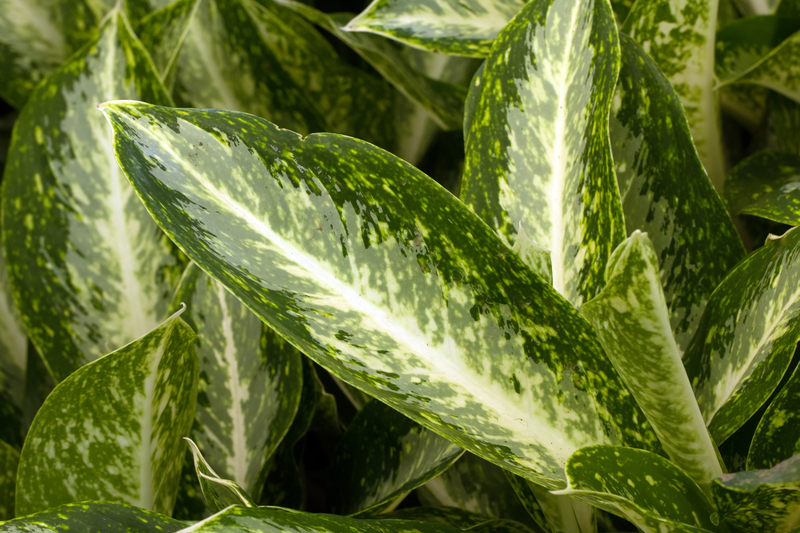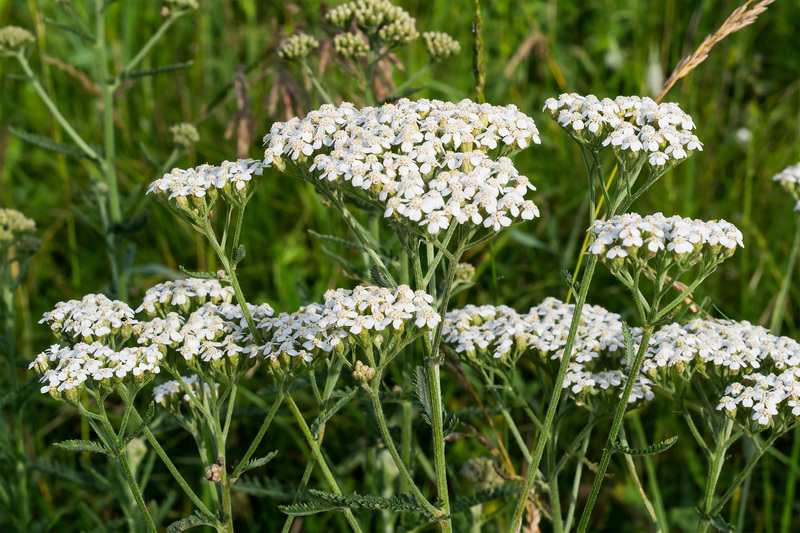Boost Your Curb Appeal: 3 Key Tips for Controlling Weeds
Posted on 02/06/2025
Boost Your Curb Appeal: 3 Key Tips for Controlling Weeds
A well-manicured lawn and garden can dramatically elevate your home's curb appeal, making a great first impression on guests, potential buyers, and neighbors. Yet, nothing undermines an attractive yard faster than unruly weeds. These unwanted invaders not only detract from the visual beauty of your landscape but also compete with your desired plants for water, nutrients, and sunlight. To achieve that picturesque, weed-free exterior, it's essential to master a few effective strategies. In this comprehensive guide, we'll explore three key tips for controlling weeds, helping you to enhance your home's appearance and create a healthy outdoor environment.
Why Weed Control Matters for Curb Appeal
Curb appeal goes beyond just painting your home or installing new lighting; the condition of your landscape is a make-or-break factor. Weeds not only look unsightly but can also signal neglect, lower property value, and negatively impact the overall perception of your home. Regular weed control is, therefore, crucial for maintaining a beautiful, inviting exterior.
- Healthy plants thrive when weeds are minimized, allowing your preferred shrubs, flowers, and lawns to reach their full potential.
- Garden beds appear tidy and intentional, creating a polished and well-maintained look.
- Preventing weed spread keeps maintenance manageable and reduces future headaches.
Understanding the Common Types of Weeds
Before diving into tips for controlling weeds, it's helpful to understand the various types of weeds you might encounter:
- Broadleaf Weeds: Dandelions, clover, plantain--usually easy to spot due to their wide leaves.
- Grassy Weeds: Crabgrass, quackgrass--they resemble lawn grass but can quickly spread and take over.
- Sedges: Nutgrass, yellow nutsedge--from the sedge family, these can be particularly tough to eradicate.

Key Tip 1: Prevent Weeds with Mulching
Mulching is a cornerstone tactic for effective weed control. By applying a layer of organic or inorganic mulch over your soil, you block sunlight from reaching weed seeds, making it difficult for them to germinate and grow. Not only does mulch suppress weeds, but it also helps retain soil moisture, regulate temperature, and add nutrients as it breaks down.
Why Mulch is Essential for Weed Prevention
- Shades soil and smothers weed seeds, reducing their growth.
- Conserves moisture, so your plants are less stressed and can outcompete potential weeds.
- Improves soil health when organic mulches (like bark or straw) break down.
How to Use Mulch Effectively
To maximize mulch's weed-blocking power:
- Choose the right mulch for your garden--wood chips, bark, straw, compost, or even decorative stones.
- Apply 2-4 inches of mulch evenly over soil, making sure to keep it away from the stems of plants to avoid rot.
- Replenish mulch annually or as it decomposes to maintain effective weed control and ensure lasting curb appeal.
Pro Tip: Landscape fabrics under mulch offer an extra barrier, but organic mulches alone can be just as effective while benefiting soil health.
Key Tip 2: Maintain A Consistent Mowing and Edging Routine
Regular mowing and precise edging are crucial for keeping weeds at bay, especially in your lawn. Many weed species thrive in neglected, overgrown grass. By keeping your lawn properly mowed and neatly edged, you make it less hospitable to weeds and create a clean, well-defined appearance.
Benefits of Proper Mowing for Weed Suppression
- A thick, healthy lawn shades out weed seedlings before they can establish.
- Cutting grass at the optimal height helps grass outcompete weeds for sunlight.
- Consistent mowing removes seed heads from weeds like dandelions, limiting their spread.
Edging Improves Definition and Weed Control
Edged garden beds, walkways, and driveways create sharp transitions between grass and garden areas. This not only enhances curb appeal but also helps prevent turfgrass and weed encroachment into flower beds.
- Use a manual or power edger for crisp boundaries along paths, driveways, and garden beds.
- Maintain edges every couple of weeks during the growing season for best results.
Remember: Taller grass (around 2.5 to 3 inches) is healthier and more competitive, while shorter lawns are more vulnerable to weed invasion.
Key Tip 3: Remove Weeds Early and Often
Even with preventative measures, some weeds will still manage to sprout in gardens and lawns. Regular, timely weed removal is the key for long-term control. The sooner you tackle weeds, the less chance they have to spread and establish deep roots.
Techniques for Effective Weed Removal
- Hand-pulling: Most effective after rain or watering when soil is moist and roots come out easily.
- Weeding tools: Use hoes, weeders, or dandelion diggers to extract roots for tough or deep-rooted weeds.
- Spot-treat persistent weeds: Apply targeted herbicides only when necessary and follow all label directions to avoid harming desirable plants.
- Remove weeds before they flower: This prevents them from seeding and spreading further.
Set a Regular Weeding Schedule
The best defense against weeds is consistency. Inspect your garden weekly and pull emerging weeds when they're small. By making weeding a part of your regular landscape maintenance routine, you'll find the task far less overwhelming.
Did you know? Leaving even small pieces of roots--especially for invasive perennials like bindweed or thistle--can lead to regrowth.
Bonus Tips for Superior Weed Control and Curb Appeal
Here are a few additional strategies to maximize your weed control efforts and keep your landscape looking spectacular:
- Water wisely: Drip irrigation or soaker hoses target water to plant roots, leaving weed seeds dry and less likely to sprout.
- Start with healthy soil: Amend your beds with compost or organic matter--healthy, vigorous plants can outgrow and outcompete most weeds.
- Plant densely: closely spaced flowers and groundcovers leave little room for weeds to take hold.
Common Mistakes to Avoid in Weed Management
- Poor mulching technique: Applying too little mulch or allowing gaps gives weeds a way through.
- Ignoring weed seedlings: Allowing tiny weeds to establish may lead to difficult weed problems later.
- Over-fertilizing: Excess nutrients can encourage both plants and weeds. Fertilize only as needed.
- Improper herbicide use: Overusing or misapplying chemicals can damage garden plants and fail to control weeds.
Year-Round Weed Control: A Seasonal Approach
Effective weed control is a year-round commitment. Here's how you can adapt your strategies based on the season:
- Spring: Mulch garden beds; watch for new weeds as soil warms; hand-pull early seedlings.
- Summer: Keep up with mowing, edging, mulching, and consistent weeding; water plants, not weeds.
- Fall: Remove late-season weeds, replenish mulch, edge beds, and prepare lawns for winter dormancy.
- Winter: Mulch exposed soil, fix barriers, and plan for next season's garden layout to minimize open spaces.
Boosting Curb Appeal: The Big Picture
Controlling weeds is one of the simplest and most cost-effective ways to dramatically improve your curb appeal. A weed-free landscape:
- Creates a welcoming, cared-for look that adds visual value immediately.
- Supports the health and growth of your desired plants--from lush lawns to vibrant flower beds.
- Reduces the workload and maintenance long-term, so you can enjoy your outdoor space more.
In summary, by focusing on these three key tips--preventing weeds with mulch, keeping your lawn trimmed and edged, and removing weeds promptly--you're not only banishing unsightly invaders but also enhancing your property's beauty and value. Consistency and diligence pay off, resulting in a landscape that reflects pride of ownership and offers instant curb appeal.

Frequently Asked Questions About Controlling Weeds and Curb Appeal
Q: How often should I apply mulch for weed control?
A: Most mulch types need to be reapplied once per year, preferably in spring or early summer. Keep it at 2-4 inches to maximize weed suppression.
Q: What's the best time to pull weeds?
A: After rain or watering when soil is moist, roots are easier to extract fully.
Q: Are organic or chemical weed killers better for curb appeal?
A: Organic solutions (like mulching and hand-pulling) are safer for your soil, plants, pets, and environment. Reserve chemical solutions for tough, persistent weeds and always follow manufacturer guidelines.
Final Thoughts: Achieving a Weed-Free, Eye-Catching Landscape
Boosting your curb appeal doesn't require a massive investment--just smart, consistent weed control methods. By prioritizing these three core tips and integrating them into your yard care routine, you'll ensure a landscape that is not only beautiful and inviting but also easier to maintain year after year.
Ready to enjoy a flawless, weed-free exterior? Start today, and see just how much of a difference effective weed management can make for your home's curb appeal!
Latest Posts
Breathing Life into Your Neglected Garden
Elevate Your Greenery with Creative Container Gardening Techniques
Vertical Gardening: A Modern Approach to Green Spaces

